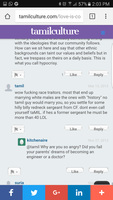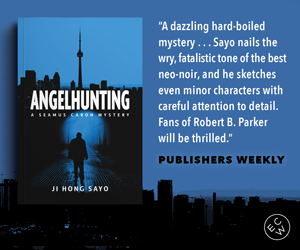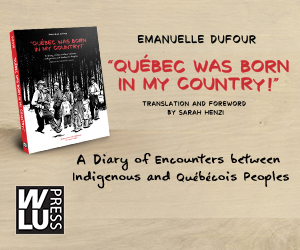Frenemy of The People
By Koom Kankesan
Tasha Nathan’s first book, Follow Your Heart, will be out on Valentine’s day. It looks at an interracial relationship from the point of view of a Tamil teenager. The word ‘relationship’ is scary enough for many Tamils. Adding the ‘interracial’ qualifier can invite nuclear deployment. Our culture is still a fairly traditional one.
It can be very difficult to become a Tamil writer writing in English, as Tasha amply explains below. Besides the challenges all writers face (insecurity, poor job prospects, access to contacts, honing one’s craft, and the quest for inspiration), there is a very dire cultural one: we, in our community, are strongly urged to become anything but artists. A doctor, an engineer, an accountant, even a lowly teacher like yours truly, anything but the doomed foray into arts. That way, we are told, lie poverty and failure.
When a group of young Tamils in Toronto started Tamil Culture, an online magazine devoted to promoting the voices of writers who wished to express their thoughts and feelings on a variety of topics, some in the community celebrated this initiative. Others derided it. And some began deploying their nuclear arsenal. It takes a certain amount of bravery, then, to decide to be a writer engaging with Tamil concerns. Tasha tells you more in her own words.
Koom: Congratulations on publishing Follow Your Heart. Tell us about the process for you. Did you set out to be a YA author? What challenges did you face?
Tasha: The process of writing is filled with a lot of frustration, tears, staring at nothing and wondering if there is a purpose for all of this. When I first started writing in high school, it was for leisure and a means to express my own fucked up emotions that needed an outlet, so that I could maintain my sanity. My fiction was safely kept within the boundaries of my journal that had my poetry and short stories that I only shared with my best friend. It was liberating because I could write what I wanted without editing for the purpose of sale, clicks, or likes. But, as my writing transitioned from private to public, it became even more difficult to be able to feel that sense of liberation that I once felt because the luxury of self-expression was just that, a luxury.
Don’t get me wrong, I still loved writing, however when you put your work out there, you need to have a pretty thick skin to be able to withstand the reaction that may arise as a consequence of your chosen topic. Some criticisms are valid and should be received openly, because in whatever you do, there is always room for improvement. However, most times, that wasn’t the case. And that experience censored me and made me more wary of the topics I choose to write about. As you continue reading internet comments on your article as well the comments on others’ articles that may be deemed culturally inappropriate, you start to figure out what society is ready to hear and what they aren’t. There becomes a point where you’re so frustrated that you wonder if this is all worth it.
The first draft of my manuscript (for Follow Your Heart) was complete shit to be honest. When I usually write, if I can’t see the picture in my head, it becomes very hard for me to write anything. I struggled and it showed in my writing, so when I got the first set of edits back, my writing had been completely torn apart and needed to be re-done. Since the book had to go into production in November and the edits and report I got back was in mid-August, I only had a month to rewrite the whole manuscript for the third stage of edits. It was a lot of anxiety but that determination to complete it was far greater. So, after work during weekdays (and my entire weekends) were allocated to rewriting my manuscript to something I could be satisfied with. My editor was also extremely helpful in terms of giving me feedback and guiding me when I was stuck and didn’t know how to proceed with the book.
I never set out to be a young adult author. I wanted to write a book but, frankly, always thought it a bit intimidating. The opportunity presented itself to me through Tamil Culture when I was contacted by the publishing company (Formac Lorimer) asking if I’d be interested in writing a book. I didn’t hesitate to say yes because I liked that they were looking for writers who wanted to empower the younger generation and that was my reason for saying yes. Having written for Tamil Culture and getting positive feedback about the impact of my article on others, this was a great chance for me to be able to branch out to a younger audience and empower them. My biggest challenge was to stay focused. I’m not a disciplined person so during crunch time, I had to really keep my mind focused when I was tempted to digress on other things. Even if nothing came up and I forced myself to sit there and stare at the computer screen for an hour before something formulated in my mind.
Your CanLit News
Subscribe to Open Book’s newsletter to get local book events, literary content, writing tips, and more in your inbox
The worst part was getting people around me to understand that. My husband, who hates reading books and probably would never read mine, didn’t understand what it took to write. Unless he heard the clicking of the keyboard, he would assume that I was wasting my time. He didn’t realize that sometimes you have to be in a particular head space, without interruption, to be able to write anything. Another challenge was that of simplifying my writing. My book is meant for reluctant readers, so my usual style of writing needed to be broken down into shorter sentences that would maintain the attention of the readers. It was hard because a lot of the nuances and words I wanted to incorporate had to be dropped because the readers wouldn’t be able to comprehend. That made it difficult for me to connect with what I was writing because I felt like I had to forgo my style of writing and adopt another method that would encourage the targeted readers to finish, and hopefully like, the book!
Koom: Can you speak to the challenges of being a Tamil Canadian woman writer?
Tasha: As if writing didn’t come with its own sets of challenges, the grouping of the words Tamil Canadian woman writer has its own weight to bear. As a Tamil writer, it is hard to find that balance where my writing can be accepted as relevant in mainstream media, while still maintaining the connection to my roots. My identity as a Tamil woman is integral to my writing because it encompasses my own struggle as a woman to be authentic to who I am, whether I want to be part of the culture or not.
I used to shy away from my Tamil side, wanting nothing to do with the part of me that I felt embodied a culture of double standards. I grew up hating the sight of Tamil women around me ‘submitting’ to the patriarchal culture when the misery of doing so was abundantly evident in their expressions and words. This free pass we constantly gave men to oppress women by choking their dreams, their sexuality, their fire; using culture to justify this oppression made me want my identity to be anything but associated with the word Tamil.
However, as I grew older, I found that my identity as a Tamil Canadian gave me the freedom to question my culture. I was interested in the idea of a Tamil woman that goes beyond the cookie cutter version of what is continuously expected. I found ways to accept my Tamil identity by giving myself permission to reject the aspects of my culture that I found oppressive to me, and set forth a new path for myself.
It can seem impossible to find a way to be relatable to a mainstream audience and at the same time, write in a way that uniquely resonates with the cultural struggles of Tamil people - many of whom seem to be struggling to express their identity as Tamil Canadian without the fear of criticism from those with oppressive old school mentalities. But interestingly enough, there’s a universality in the specificity. Despite cultural differences, the struggle for women to be open and liberated from patriarchal structure which oppresses their voice is felt throughout all ethnic backgrounds.
My main issue however has been being a woman writer. The moment I publish anything, I am subjecting myself to be attacked. And the attack won’t be limited to my content, but my gender as well. Contributing to Tamil Culture, writing within a conservative society where men are at the epicentre of our everyday lives, it not easy to challenge the patriarchy without facing a great deal of vitriol. I’ve gotten rape threats, been slut shamed, and a few men have tried to bully me into stopping writing because they viewed what I was saying as marring the purity of the Tamil race. It took a while for me to move past that and I was only able to by focusing on the positive responses I’ve gotten, which thankfully were far greater than the negative. I’m not saying that Tamil society hasn’t progressed, but I think it will take a few more generations for men to not feel threatened by a woman who challenges patriarchy, especially since it seems to be intertwined with ‘culture.’
It is that bullying tactic that, I believe, which holds back a lot of Tamil women from writing.
The views expressed in the Writer-in-Residence blogs are those held by the authors and do not necessarily reflect the views of Open Book.
Koom Kankesan was born in Sri Lanka. While his family lived abroad, the civil war in Sri Lanka broke out and this caused them to seek a new home. They eventually settled in Canada and have lived here since the late eighties. He has a background in English Literature and Film Studies. Koom contributed arts journalism to various publications before becoming a high school teacher in the Toronto District School Board. Since working as a teacher, he has taken semesters off now and again to work on his fiction. The Tamil Dream, his new book, is his most ambitious to date. It looks at the end of the civil war in Sri Lanka and how it affected Tamils here in Canada. Besides literature and film, Koom has deep interests in history and science, and an enduring love for comic books.
You can write to Koom throughout January at writer@open-book.ca.




